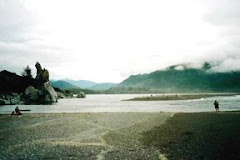The California State Grange and the National Grange recently passed the following resolution:
WHEREAS: THE KLAMATH RIVER WAS THE THIRD LARGEST SALMON FISHERY ON THE PACIFIC COAST, AND
WHEREAS: IN SEPTEMBER OF 2002, LOW FLOWS AND WATER QUALITY DEGRADATION CAUSED A KILL OF MORE THAN 33,000 MIGRATING SALMON AND SIMILAR CONDITIONS CAUSED SIGNIFICANT SALMON KIILS IN 1994, 1997, AND 2000 AND,
WHEREAS: A DRAFT KLAMATH BASIN RESTORATION AGREEMENT WRITTEN BY THE KLAMATH SETTLEMENT GROUP (CONSISTING OF 26 STAKEHOLDER ORGANIZATIONS) WAS RELEASED IN JANUARY OF 2008 SETTING FORTH SHORT AND LONG TERM RESTORATION GOALS AND RIVER MANAGEMENT STRATEGIES, AND
WHEREAS: THE PLAN IS INCOMPLETE AND DOES NOT INCLUDE INPUT FROM ALL POTENTIAL STAKEHOLDERS AND DOES NOT APPEAR TO HAVE BEEN ACTED UPON, AND
WHEREAS: UNDER THE PUBLIC TRUST DOCTRINE, THE WATERS OF THE KLAMATH RIVER ARE OWNED BY THE STATES FOR THE PEOPLE IN PUBLIC TRUST, THEREFORE BE IT
RESOLVED: THE CALIFORNIA STATE GRANGE AND THE NATIONAL GRANGE SHALL PETITION THE CALIFORNIA LEGISLATURE AND THE NATIONAL CONGRESS TO CONVENE HEARINGS TO ACHIEVE A KLAMATH BASIN RESTORATION PLAN AND TO FUND A COMPLETE STAKEHOLDER WORKING GROUP TO PRODUCE A DEFINITIVE KLAMATH BASIN RESTORATION PLAN TO BE SUBMITTED TO CONGRESS FOR FUNDING.
This resolution puts The Grange on a collision course with promoters of the Klamath Basin Restoration Agreement (KBRA) and with the Irrigation Elite who would be that agreement’s main beneficiary. This is an amazing development because for many years The Grange has supported most positions of Big Agriculture. Even more amazing is the endorsement of the Public Trust Doctrine contained in the resolution. This also is in conflict with Big Ag which is working hard to transform public trust water into a private commodity.
The Grange emerged after the Civil War as a populist organization representing small family farmers and their communities. At the time these small farmers were being squeezed by the railroads, the banks and newly emerging industrial agriculture. It was a progressive, activist organization and considered radical by some.
As industrial agriculture expanded and came to dominate, the Grange – like the family farmers it represents – shrunk in membership and influence. It also became staunchly conservative. Late in the 20th century the Grange in Northern California came to be dominated by anti-environmental property-rights activists.
Here’s a link to an article about the Grange and here are links to the National and California State Grange web sites.
So what’s up with the Grange today? What motivated its leaders to take action in opposition to the Irrigation Elite and the KBRA? KlamBlog is not sure but we intend to invite those who championed the Grange Klamath Resolution to clarify their position on this site.
Subscribe to:
Post Comments (Atom)


No comments:
Post a Comment